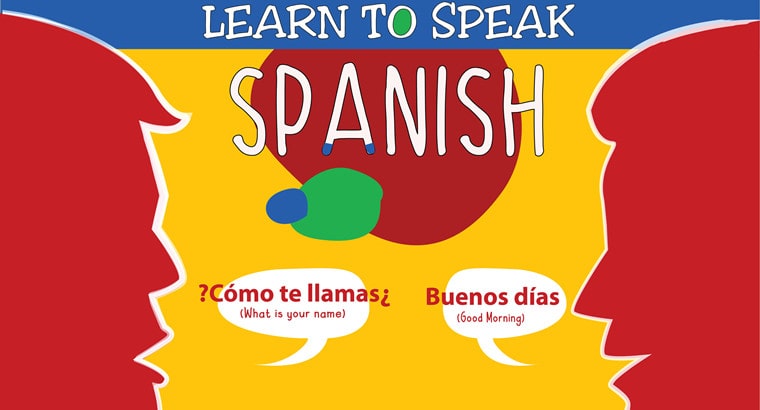You can’t say you’re fluent in Spanish if you’re not a fluent Spanish speaker. That’s why it’s crucial that you practice Spanish conversation.
If you’re like most Spanish learners, you want to be able to communicate in Spanish in real life. But, just like others, you may be wasting too much time on grammar and translation and ignoring the speaking practice.
In fact, speaking is the most overlooked skill in most foreign language learners’ schedules. That’s why it’s important to practice Spanish conversation. But, how to practice speaking Spanish?
10 Fantastic Ways to Practice Spanish Conversation
You can spend months or years learning Spanish and still be unable to hold a simple conversation. But don’t worry as the following ways will help you practice speaking effectively and become more fluent in Spanish.
1. Talk to Yourself in Spanish
Before communicating with another person, talking to yourself will make you feel more comfortable when speaking in the foreign language you’re learning. It’s a great way to try out all the vocabulary and phrases you know before using them in actual conversations.
In fact, try to think in Spanish as often as possible and pronounce your thoughts out loud. You can tell yourself what you see, do, or plan. Use every chance to think and talk to yourself in the language you’re trying to learn.
If it’s easier for you, pretend you’re talking to someone else in front of the mirror. Ask questions related to your plans or interests and try to give appropriate answers.
2. Record Yourself Speaking Spanish
Talking to yourself in Spanish is a good way to practice speaking, but recording yourself while doing it is even better. It’ll give you a chance to hear yourself and notice any mistakes in pronunciation, grammar, or any other aspect of the language that you need to work on to improve.
If talking to yourself is uncomfortable for you, try reading a Spanish article on a topic of your interest and record yourself while reading.
3. Find a Spanish Online Tutor
Conversational Spanish classes with online tutors will give you a chance to communicate in the target language on a daily basis even if you don’t live in a Spanish-speaking country. There are many great Spanish native online tutors on language learning programs that will help you practice speaking by engaging you in real-life conversations.
Since they can adjust the lessons according to your needs, make sure they know you want to focus on conversations. This should include being able to ask them questions as well as give answers to their questions.
By practicing speaking with a good online tutor, you will get constructive feedback and guidance to make improvements faster and easier.
4. Find Different People to Talk With
Different conversation partners will result in different topics to discuss which will enrich your vocabulary and prepare you for all sorts of real-life conversations.
You can join online language exchange communities where you can find many Spanish native speakers that want to learn your native language. That way, they will help you to become more fluent in Spanish while helping them become more fluent in your mother tongue.
If you discuss your everyday lives with one conversational partner, you can talk about music, business, travel, culture, or any other topic of mutual interest with others.
5. Try Language Shadowing
Language shadowing is a fun way to have Spanish conversation practice at home. Basically, you listen to some audio in Spanish and try to repeat it as precisely as possible. This means imitating the intonation, rhythm, accent, and pronunciation of the native speaker as many times as necessary.
You can use any Spanish native radio, series, movie, or documentary. For example, you can watch Narcos on Netflix and pretend you are one of the actors. Or, you can watch a Spanish TV program and imitate the weatherman or news reporter.
6. Find Local Language Exchanges
See if there’s a local language exchange in your city and join in to meet new people that want to learn a foreign language.
Whether they are native Spanish speakers or other Spanish language learners like you, you can meet with them to practice your Spanish in a way that feels natural and safe.
7. Practice Speaking 3 Times a Week
Once you decide which practicing methods work for you, try to devote around 30 minutes three days a week to them. For example, you can have a lesson with your online tutor on Monday, watch a Spanish series and repeat what the actors say on Wednesday, and talk to yourself on Friday.
This way, you’ll use the language consistently which will help you remember the vocabulary and grammar rules you’ve learned and improve your fluency in Spanish.
8. Learn Common Spanish Conversation Starters
To be real, you can’t really start any conversation in Spanish if you don’t know the basic conversation starters. These common phrases are great for small talks and will help you break the ice when starting a conversational lesson with your language exchange partner or tutor.
Useful Spanish conversation starters that you should keep in mind when practicing speaking include:
- ¿Dónde trabajas? – Where do you work?
- ¿A qué te dedicas? – What do you do?
- ¿Tienes hermanos o hermanas? – Do you have brothers or sisters?
- ¿Tienes mascotas? – Do you have any pets?
- ¿Qué es lo mejor de tu país? – What’s the best thing about your country?
- ¿Cuál es tu comida favorita? – What’s your favorite food?
- ¿Alguna vez has vivido en otro país? – Have you ever lived in another country?
9. Speak in Spanish to a Virtual Assistant
Whether you use Google, Siri, Amazon Alexa, or any other virtual assistant, set it up to speak in Spanish. Not only will it speak in Spanish, but it will also make you speak in Spanish to get the response you need.
10. Sing in Spanish
Last but not least, listening to Spanish songs and singing them is an effective and fun way to learn new words and practice pronunciation.
Find Spanish songs or musicians you enjoy listening to and sing them aloud. You can find the lyrics and read them while singing along.










